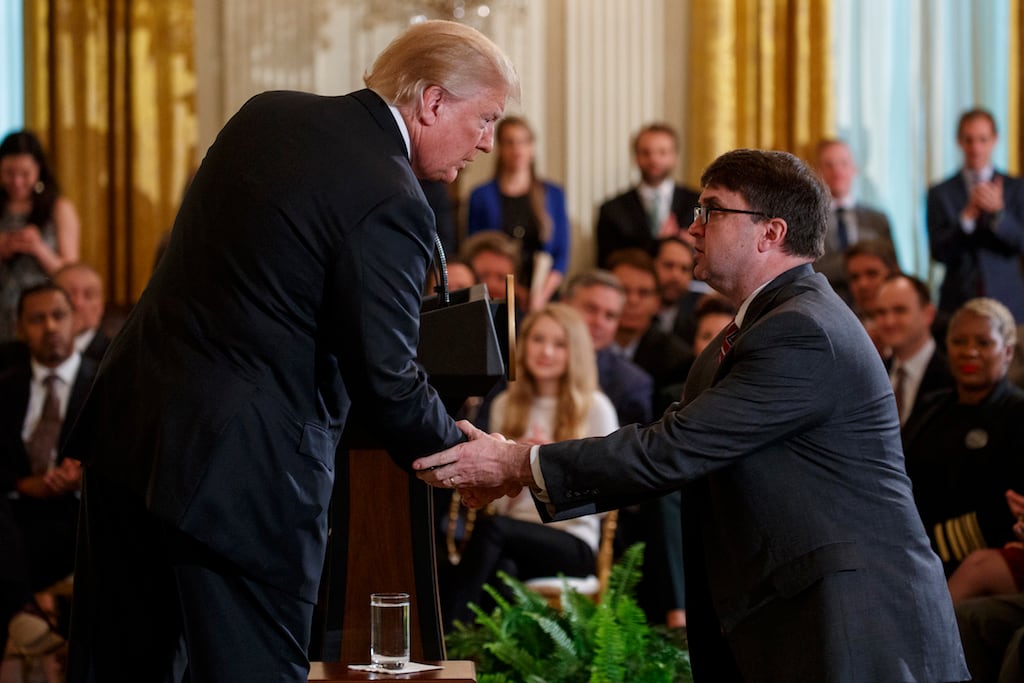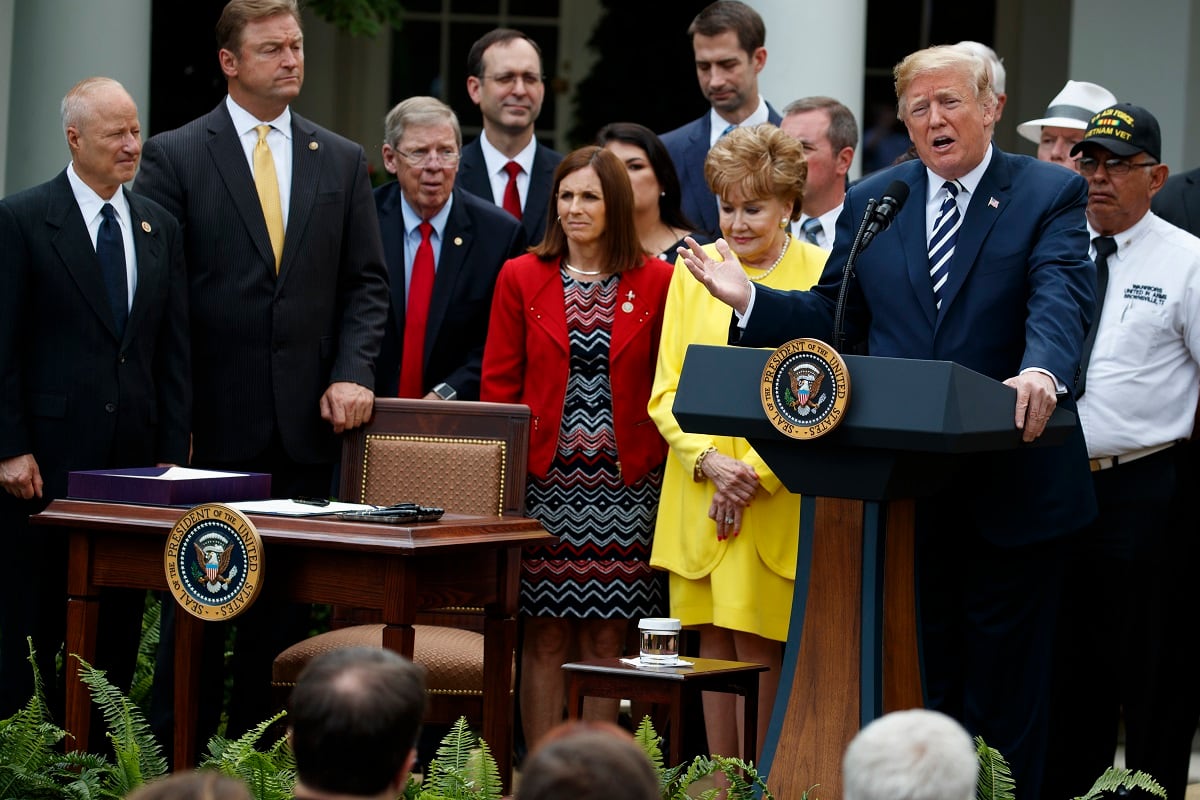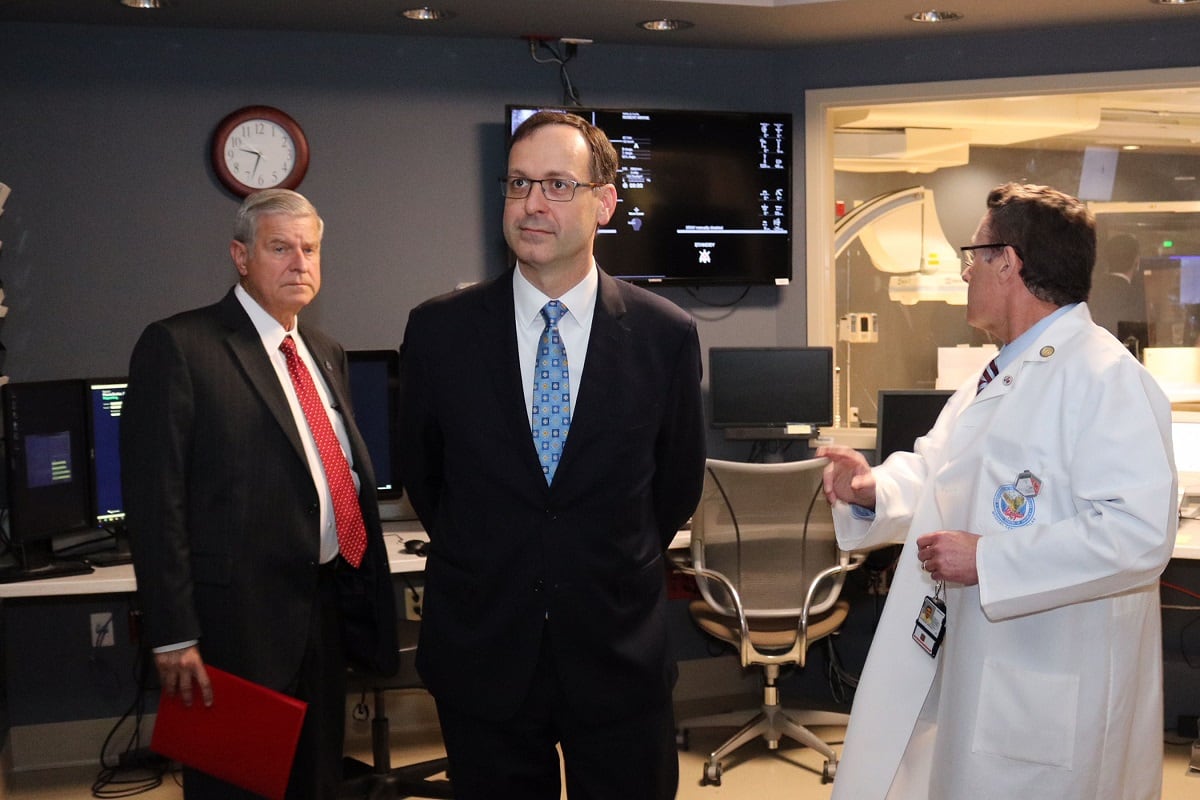WASHINGTON — Now that the Senate has confirmed Robert Wilkie as the next secretary of Veterans Affairs, he takes over a department that has produced some of the most noteworthy accomplishments for the Trump administration but also some of the biggest headaches.
Wilkie, who will be sworn in later this week, served as acting secretary for two months following the firing of former VA Secretary David Shulkin.
During that time, he helped push for legislation expanding outside health care options for veterans and signed off on an ambitious, multi-year plan to overhaul the department’s electronic medical records system. Both issues were part of a series of highly-touted moves by the White House to help reform and modernize the massive veterans bureaucracy.
RELATED

But Wilkie also witnessed first-hand the displeasure from Congress and distrust from veterans groups over the state of VA, which has seen its top leader dismissed twice in the last five years and still is without multiple top-level administrators. Just last week, House Democrats asked for an investigation into whether acting VA Secretary Peter O’Rourke has been firing and assigning senior executives for political reasons.
Here’s a look at the top issues Wilkie will have to address in coming weeks as the 10th permanent VA secretary:
The budget fight
Administration officials and lawmakers are currently sparring over a $1.6 billion funding gap in VA’s proposed fiscal 2019 budget, a fight that has largely stalled the entire federal appropriations process on Capitol Hill.
Democrats (and some Republicans) have been pushing to add the money to spending plans next year without offsets, arguing that shortfalls in community care programs should not victimize other veterans programs.
But the White House has insisted the money come from other federal spending trims, even within VA. They say the federal budget cannot continue to grow unchecked, even for priorities as important as veterans’ care.
Wilkie will be dropped into the middle of that debate immediately. As a former Hill staffer, he’ll be tasked with building a bridge between the lawmakers and administration on the issue, with the goal of moving the appropriations deal ahead before the start of the new fiscal year on Oct. 1.
RELATED

The community care overhaul
The funding fight is related to legislation passed earlier this summer called the VA Mission Act, which calls for a restructuring of the department’s outside medical care programs over the next year.
The work is expected to be the center of fights surrounding “privatization” of VA missions, an accusation that administration officials — and Wilkie — have strongly rejected.
In his confirmation hearing, Wilkie said he will “oppose efforts to privatize VA” but also suggested that he expanding veterans’ medical options outside the traditional department system doesn’t amount to draining resources from the department.
Without a permanent under secretary for Health (the White House has been unable to fill that role for the last 18 months), Wilkie will be the key figure in that health care fight, one that’s likely to be closely scrutinized by lawmakers for the next year.
RELATED

The staff question
After he was pushed out of the secretary job, Shulkin accused political operatives within the White House and VA of sabotaging his tenure and working to privatize aspects of department health care.
The privatization fight will play out in the community care overhaul work, but Wilkie will also have to deal with questions of what senior staffers he can trust as he takes over a Washington office with many of the same personnel that Shulkin distrusted.
At Wilkie’s confirmation hearing last month, Senate Veterans’ Affairs Committee ranking member Sen. Jon Tester, D-Mont., warned Wilkie that “sooner or later, you're going to come to a crossroads with these folks. That's what happened to David Shulkin … and that's happened to countless other folks who are no longer with the department.”
Wilkie will likely set the tone for those fights — or signal that stability and comity has arrived at the department — in the next few weeks, as he brings new personnel into VA headquarters to make up his staff.
RELATED

The medical records modernization
In May, while working as acting secretary, Wilkie finalized a contract with the Missouri-based Cerner Corp. to bring veterans’ electronic medical records in line with Defense Department systems over the next decade.
The complex project is expected to cost upwards of $10 billion and has been hailed by health officials as a major information systems breakthrough not only for veterans and troops, but potentially for the entire American medical community.
Earlier this month, House Veterans’ Affairs Committee officials established a new subcommittee specifically to monitor the progress on that work. Chairman Rep. Phil Roe, R-Tenn., has said he worries about the potential effects on veterans as the work progresses, and has promised to help with tangled issues of information sharing and personal data.
Wilkie has listed the medical records work as one of his top four priorities for the department in the months ahead, along with the community care overhaul, reducing disability claims backlogs, and reforming the department’s human resources systems.
Leo covers Congress, Veterans Affairs and the White House for Military Times. He has covered Washington, D.C. since 2004, focusing on military personnel and veterans policies. His work has earned numerous honors, including a 2009 Polk award, a 2010 National Headliner Award, the IAVA Leadership in Journalism award and the VFW News Media award.









